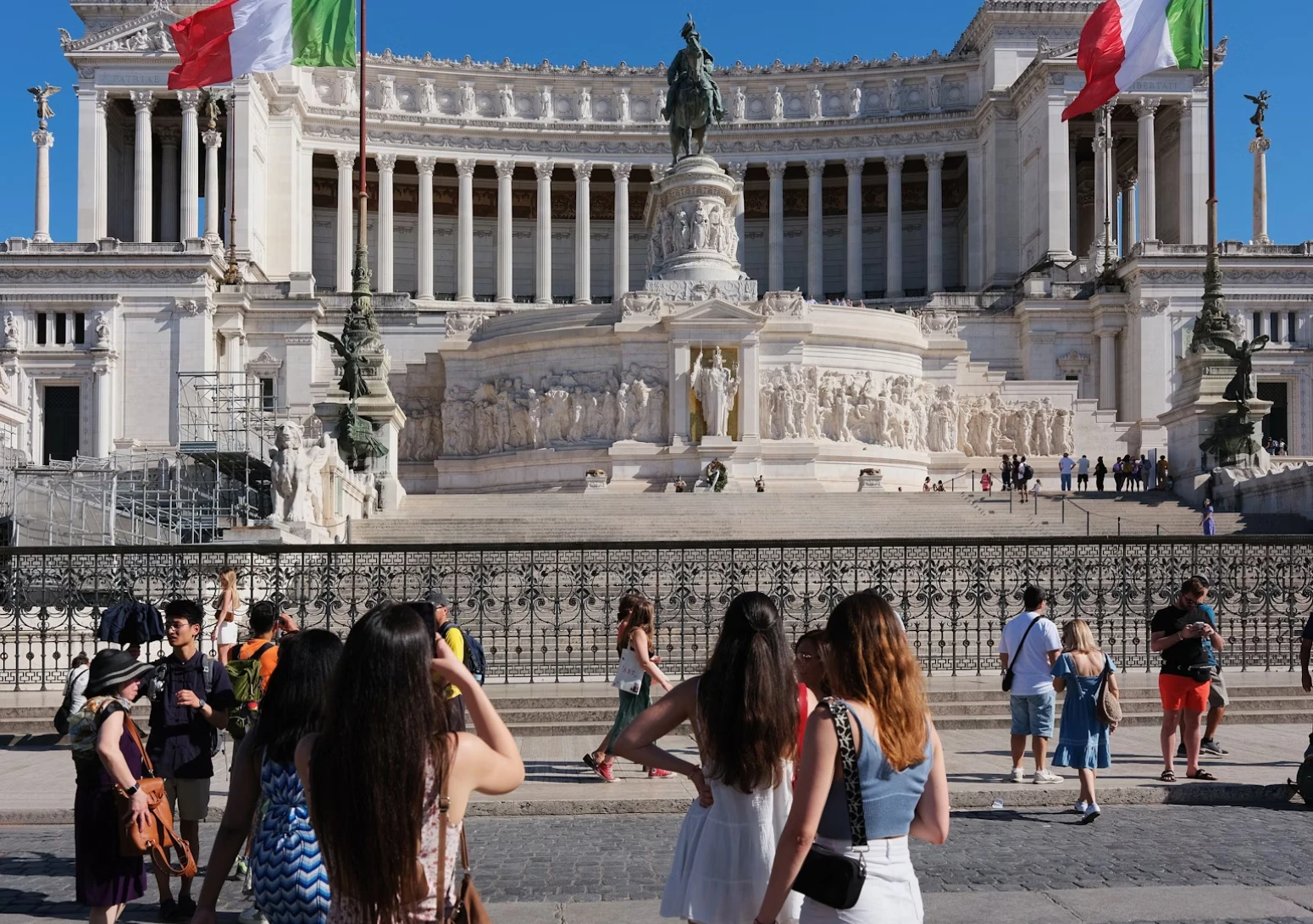Curious about living in Italy? If you're an Aussie between 18 and 35, there’s a little-known opportunity that could completely change the way you travel: the Working Holiday Visa. Most people don’t even realize Italy offers one but yes, it exists. And it's real.
This visa lets young Australians live in Italy for up to a year, picking up casual work along the way to help fund the adventure (if they need or want to). It’s not just a holiday, and it’s not just work. But it does give you the chance to work during your trip, making it more flexible than most kinds of visas.
In this guide, we’ll walk you through how the Working Holiday Visa for Italy works, who’s eligible, how to apply, and what to expect once you’re there. So, no matter if you’re already planning the trip or just found out about this visa, you’re in the right place!
Yep, and surprisingly, not many people know about it. When Aussies think about working holiday destinations, places like the UK, Canada, or Japan usually get all the attention. Italy? Not so much. But the opportunity is there.
It’s all because of a bilateral agreement between Australia and Italy. As it makes it possible for Italian students to go to Australia to work and study, it also makes it possible for young Australians to live in Italy for up to 12 months. That means you can legally take on short-term or casual work while spending your days wandering, learning Italian, and discovering parts of the country most tourists never see.
And the best part? Most people don’t even realize it exists.

If you're an Australian citizen between 18 and 35, chances are you're already ticking most of the boxes. The requirements are pretty straightforward (nothing sneaky or complicated, I swear) but here’s what you need to know.
To apply, you’ll need:
Basically, if you’re financially independent and not planning to move to Italy forever (at least, not yet) you’re good to go!
As with all these kinds of documents, the application process for the Working Holiday Visa is not the quickest.
There’s no “click and go” online form like some countries offer. Italy likes to keep it old-school, and all visas are processed physically through the Italian consulates in Australia. This means that you’ll have to show up to their offices with all the right documents before catching your flight. But don’t worry: if you’re organized and know what to expect, it’s totally manageable.
Here’s how the process works, step by step:
Italy has consulates in Sydney, Melbourne, Adelaide, Brisbane, and Perth. Where you live will determine which one you need to go through (you can’t just pick whichever is more convenient to you). Just remember that each consulate has different policies and procedures, so it’s always worth checking their website for all location-specific info!
Consulates appointments always book out very quickly, especially in peak travel seasons like mid-year or just before summer. As soon as you’ve got a rough idea of when you’d like to go to Italy, book your appointment! Even if you're still finalizing your plans.
You’ll need to show up to your appointment with a full set of documents. If you forget even one of them you can delay the whole process (or worse, you might need to reschedule the appointment). Typically, you’ll need the following documents:
Also, it’s not requested but it might be a good idea to bring both originals and photocopies of all the documents. Just in case.
As I’m writing this, the fee is roughly €116, paid in Australian dollars. Payment methods vary depending on the consulate with some accepting EFTPOS and others only taking money orders. Again, check your consulate’s instructions ahead of time!
The consulate appointment is usually pretty quick if you’ve got all your paperwork ready. Still, don’t expect a super “polished” experience. Italian government offices (and their overseas consulates are no exceptions) are famously bureaucratic, so patience is key.
Once you’ve submitted your application, you will typically need to wait for 2 to 4 weeks to receive your Working Holiday Visa. Times, however, can vary depending on the season or how busy the consulate is.
Here’s the thing: the Working Holiday Visa for Italy is a once-in-a-lifetime opportunity. You can only use it once and it can’t be extended.
But that doesn’t mean you have to leave Italy immediately. If you’ve fallen in love with the country (and it happens a lot), there are a few possible next steps. For example, you could apply for a student visa to keep studying. Or you could switch to a work visa if you’ve landed a job while traveling. You just need to be aware that those processes can be a bit more complex than a Working Holiday Visa.
And, of course, going back home is always an option too. Hopefully with some language skills and unforgettable memories!

Still got questions about this visa? Here are answers to some of the most common things you might want to know about it!
Not necessarily, especially if you’re thinking of traveling only to bigger cities or tourist-heavy areas where English is more common. That said, knowing even a few basic phrases can really improve your day-to-day experience. You might want to check out language courses (shorter or longer) in Italy, Italians really appreciate the effort!
Yes, yes, and yes. That’s one of the best perks of the Italian Working Holiday Visa! As you probably know, indeed, Italy is part of the Schengen Area and this means you can travel freely to most EU countries (no border checks, no extra visas). Just keep in mind that some countries, like the UK, have their own changing rules you should be wary of!
Of course. The Working Holiday Visa allows you to enroll in non-degree study like Italian courses, cooking classes, or photography workshops. Just don’t expect to use this visa for full-time university study: you'd need a different one for that.
No, working is totally optional. Some people pick up casual jobs to fund their travels, others just use the visa as a way to stay in Italy longer without needing a student or tourist visa. You can work if you want, but you're just as free to spend your time travelling, studying, volunteering, or doing nothing at all.
Absolutely. If you're in the right age bracket and have even a tiny interest in Italy, this visa is kind of a no-brainer. It gives you flexibility and a legal way to stay in one of the most culturally rich countries in Europe. So if you're thinking about it… go!
Take your chance and shape your future in the “Bel Paese”!
Explore our programs!